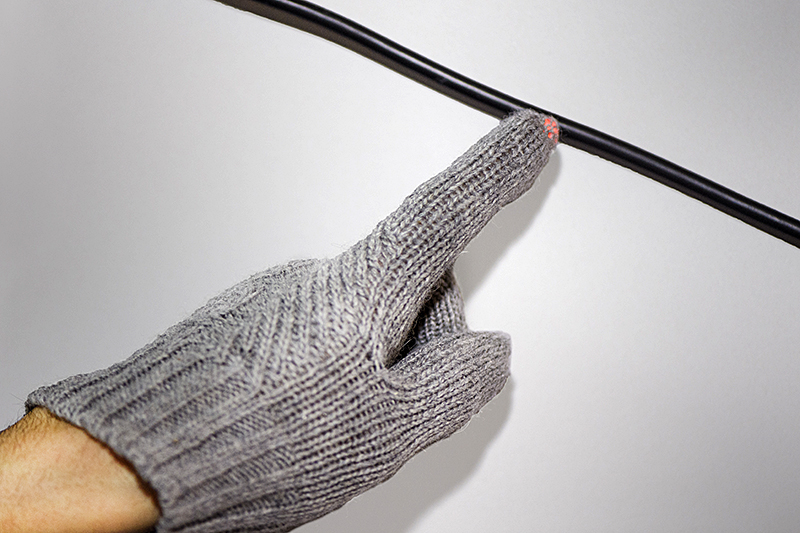WiFi-powered, washable smart clothes will monitor your health in future
A major issue hindering the commercial development of smart garments is their fabrication as clothes need to be periodically washed and electronics despise water. However, the Purdue smart clothes can also be used underwater and just like conventional fabrics, they can be washed in washing machines without damaging the electronic components sewn on their surface.

A team of engineers at Purdue University claim to have developed a spray/sewing method to transform any conventional fabrics into battery-free, washable smart clothes that are powered wirelessly via silk-based coils sewn onto the textile.
In the near future, this smart clothing will not only make wearers more productive but also monitor their health and even call for help in the event of an accident, the researchers claim. For instance, a battery-free glove developed by Purdue engineers illuminates its fingertips every time the user is near a live cable to warn about the possibility of an electric shock.
A major issue hindering the commercial development of smart garments is their fabrication as clothes need to be periodically washed and electronics despise water. However, the Purdue smart clothes can also be used underwater and just like conventional fabrics, they can be washed in washing machines without damaging the electronic components sewn on their surface.
"By spray-coating smart clothes with highly hydrophobic molecules, we are able to render them repellent to water, oil and mud," said Ramses Martinez, an assistant professor in Purdue's School of Industrial Engineering and in the Weldon School of Biomedical Engineering at Purdue's College of Engineering.
While common wearables require batteries to operate, the Purdue smart clothes harvest energy from Wi-Fi or radio waves in the environment to power their circuitry.
"Such wearable devices, powered by ubiquitous Wi-Fi signals, will make us not only think of clothing as just a garment that keeps us warm but also as wearable tools designed to help us in our daily life, monitor our health and protect us from accidents," Martinez said.
The new technology is expected to accelerate the development and commercialization of future smart clothes which are set to transform the way we communicate and interact with digital devices.










